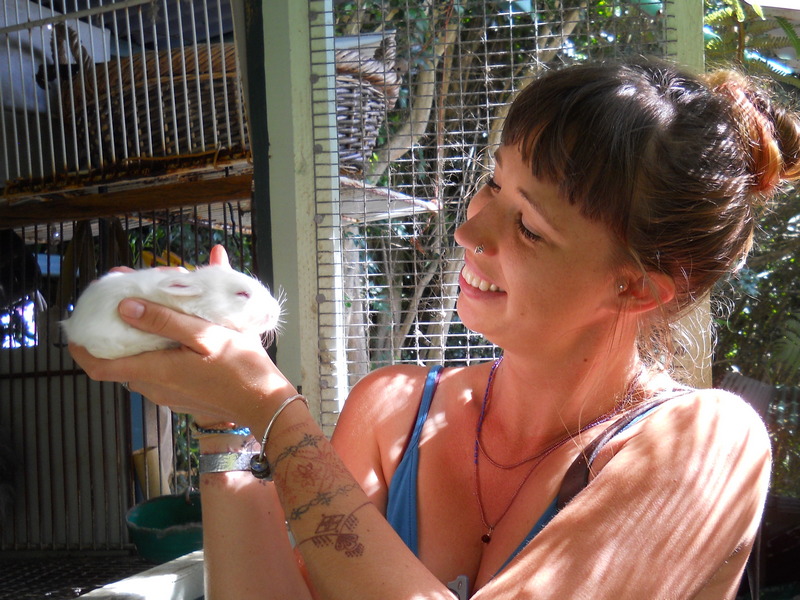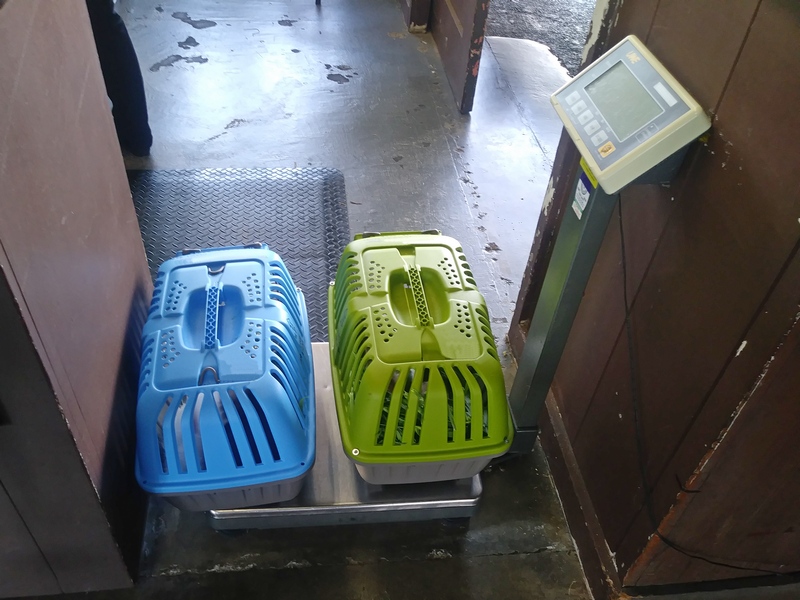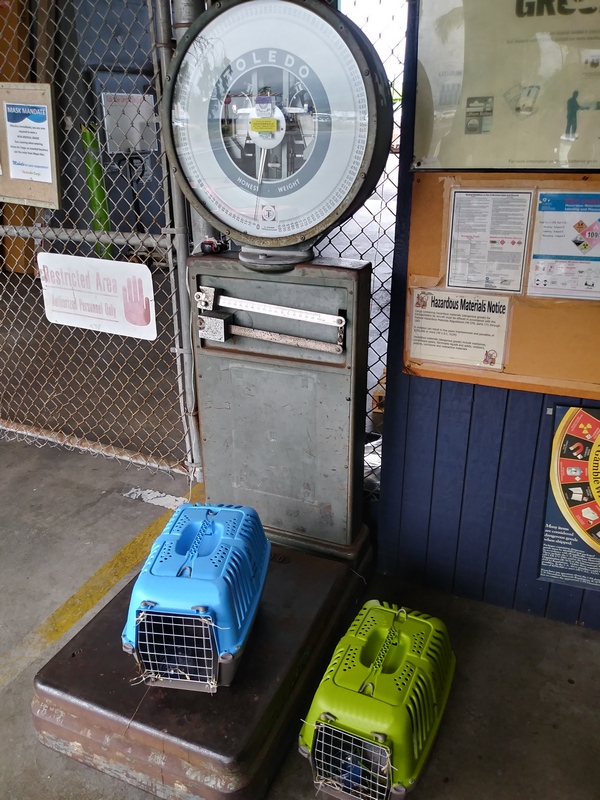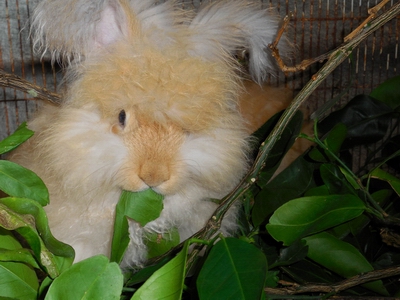
These are English angora bunnies, if you don't have any plans to use their wool, they're way too much work to have around so we don't recommend them as purely pets. By their temperament, they do make lovely pets, but the coat maintenance overshadows that, so they're not recommended to be a pet bunny. Their coat needs maintenance, generally a weekly 'brushing' with a long toothed steel comb at the very least. Their coat also needs to be harvested every three to four months. Even though they molt their coats, they need help to do that or the molting fiber gets tangled with the incoming fiber and becomes a mess. For several months after shearing they don't need coat maintenance, so if they're kept as a fiber provider they are only high maintenance for part of the time. An angora show coat is more maintenance.
It's now mid-October and we've just returned from a month long vacation. As soon as there's been a general hutch cleaning, every bunny has been groomed and we've sorted out which bunnies should meet up with which bunnies, there should be some bunny meet ups happening.
Hopefully that will result in litters in late November or early December. Which would then result in young bunnies old enough for new homes in late January or early February.
When there's a prospective litter, it will be noted on the "In the Nest Box" page. Hopefully with pictures of the prospective parents and notes of what we hope from the pairing.
These aren't available baby bunnies, just reference pictures on how fluffy these bunnies get and how quickly. Baby rabbits are born pretty much hairless and their eyes aren't open. Around ten days old, they open their eyes and have started growing hair.
This first picture is of a litter of baby bunnies at two weeks old. They've grown some hair, they've opened their eyes a bit and they can walk around fairly well. At this age, they're entirely dependent on mum bun for their food.
This particular litter is all 'tortoiseshell' even though mum bun is a black doe. Their sire is a tortoiseshell and mum has the recessive for tortoiseshell and there was a 50% chance for each baby that it would be tortoiseshell.
This second picture is when they're a month old. They have their eyes entirely open, they are starting to eat solid foods. Since we feed a lot of fresh forage to our rabbits, we will start feeding the baby buns grasses and leaves at this age.
This is the same litter at two months and one week old. They're definitely angora rabbits at this point. The long 'wool' of an angora rabbit requires two recessive genes before it will appear. Each baby angora needs to get one recessive 'long wool' gene from each of it's parents. Which means if an angora rabbit is bred to any other breed of rabbit, you won't see this long wool. Unless, of course, that other rabbit has an angora ancestor in it's heritage and the recessive long wool gene was handed down in each successive generation from whenever the angora was in there.
In one or two more months, their wool will be long enough to harvest. They get haircuts, just like little sheep. Three haircuts per year, whereas sheep only get one. Their fluff is then spun into some amazing and insanely soft and fluffy yarn. Not quite as much 'halo' as the commercial angora yarn, which is usually from a different breed of angora. The English angora have a softer wool with less of the guard hairs that create the halo. So it feels softer but doesn't look as crazy fluffy. However, it doesn't have the possible 'prickle' feeling that the commercial angora yarn sometimes can have. English angoras aren't usually used to produce fiber for commercial angora yarn because they produce less fiber per harvest than the larger commercial angora rabbits.
The adoption fees for the bunnies are generally $65 for the male bunnies and $85 for the female bunnies. They can fly inter-island, although those costs vary depending on which island they're flying to.
For bunnies to fly inter-island, there is an airline kennel (usually $48 unless it's a bigger one for more than two bunnies although we don't have any of those at the moment), $25 for a ride to the airport (it's 120 mile round trip) and the airfare to Maui and Oahu is $75.
If the bunnies are going on to Kauai, there's an additional airfare of $75 for the 'next' flight in their journey from Oahu since the airline hub for Aloha Air Cargo is on Oahu. This requirement for dual fares is new since the Time of Covid, although I don't know if it's related to that in any way. The airline has also decided to require someone on Oahu to pick up the bunny between flights, so there's also a $120 'bunny babysitting fee' on Oahu for someone to pick up the bunny from the airline, keep it for several hours and bring it back. If you have someone on Oahu who can receive and make arrangements from Oahu, that would be a lot easier, I would think. The bunny sitting and additional airfare are only for the Kauai folks, though.
If anyone knows an easier way to get bunnies to be able to meet their new people on Kauai, please!, drop us an email!


Since we now have an additional airline who will fly bunnies, we now have an additional option of airports to ship bunnies. Sometimes they can fly out of the little Waimea-Kohala airport which is a higher elevation and cooler airport than the one in Kona. It all depends on the available flights as to which one they use.
Check out Hillside Farm's In the Nest Box" page, so you can see who else may be showing up. Other than the baby bunnies listed here, there's one more litter from Hillside Lotus, a black doe, and Hillside Vincent, an agouti buck. They were born two weeks ago and we still don't know their genders although there's seven of them so there should be some of each. Not that bunnies always get the 'desired gender' memo. We've had large litters of all one gender before and probably will again.
If you'd like a fuzzy bunny of your own, send us an email using the 'mailto' link below.

If you like, you can send us an email and ask about the available bunnies, yarn, Hawaii things, what we should have on our webpage or just about anything else.
Mail to: Hillside Farm Hawaii